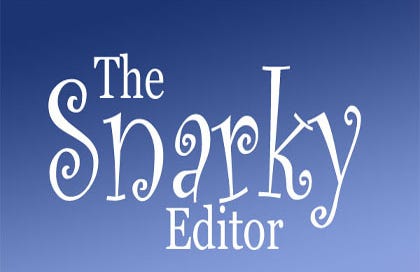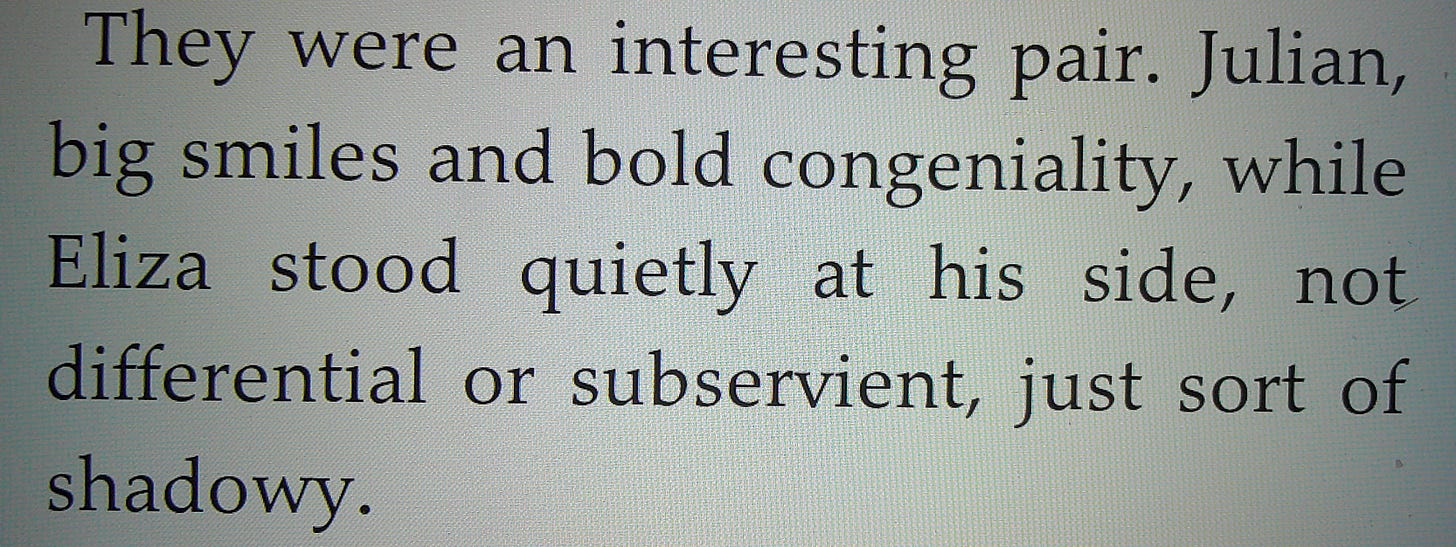Knowledge is like underwear. It is useful to have it, but not necessary to show it off. — Nicky Gumbel
When he made that pithy comment, Mr. Gumbel was talking about pariphrasis, the tendency to use large words in order to appear smarter. The Snarky Editor couldn’t agree more. Big words don’t always make you sound smarter —especially when they’re the wrong big word.
…a full emersion into the world of the elite…
Since the author is talking about someone being absorbed into this elite society, the correct word would be immersion. To be immersed in something is to be deeply engaged in it, like being totally focused on a project, or totally underwater in a bathtub. Emersion means to emerge from something — exactly the opposite. In fact, the Snarky Editor isn’t quire sure what point this writer is trying so hard to make — but she’s certain he missed the intended target.
I didn’t care if she was ever persecuted for the murder of her brother.
Persecute means to subject someone to hostility and ill-treatment, especially because of their race, religion, or political beliefs. Prosecute is a legal term that means to bring a criminal action against someone in a court of law. A murderer would be prosecuted for the crime. Since the narrator has such a low opinion of the criminal, he might also be tempted to persecute her for her belief that murdering her brother was just fine — but since the context here is of a legal case, the correct word is prosecute.
I stood out on my front porch as everyone walked to their perspective cars.
Perspective means a point of view, an attitude, or a particular way of looking at something. In art, perspective is the technique artists use to create a sense of depth in a two-dimensional work. Neither is the case here.
Respective involves individual connections or ownership. If each student in a classroom gets a different assignment, one based on their individual needs, then each student receives his or her respective assignment. In this case, the correct phrase is, Everyone walked to their respective cars — that is, each person walked to the car which belonged to that individual.
Eliza stood quietly at his side, not differential or subservient…
Differential is used to compare or highlight variations between different things. Doctors use the technique of differential diagnosis when they observe symptoms and say, “It can’t be X disease, because X doesn’t cause that symptom.”
Deferential is commonly used to describe a person's behavior or attitude towards someone in a position of authority. It’s a term of respect — which is what this author meant to say. (Subservient, however, is used correctly here. Yay to the author for that.)
I found the door, skipped down the steps, and wa-la, the TV magically appeared.
Oh, the pain the Snarky Editor feels over this one — mostly because she couldn’t decide whether this misuse should be included with the examples of hearing a word wrong, or of messing up foreign-language terms, or of trying to look intellectual. Take your pick.
The author meant, of course, to say Voila! — the French term meant to draw attention to something that has happened or appeared as if by magic. So the term is actually used correctly here, but the attempt to look smart by tossing in a foreign-language phrase failed miserably. (And don’t get the Snarky Editor started about people who spell it Viola! instead.)
So when you’re tempted to show off your vocabulary with multisyllabic words, do please make certain they’re the right multisyllabic words. And, perhaps, consider whether something shorter and plainer would be better yet.
The Snarky Editor comes out of hiding occasionally to comment on the awkward, silly, and sometimes hilarious editing errors found in published books.
#snarkyeditor #everybodyneedsaneditor
Leigh Michaels is the award-winning author of more than 100 books, including historical and contemporary romance, non-fiction books about writing, and local history. More than 35 million copies of her books are in print in 27 languages and more than 120 countries. She is also a writing coach and book editor, though she promises to be snarky only in regard to published books.
To find out more, check out https://leighmichaels.com









You're right, Peter -- people are "who," things are "that", so the better way to say it would be "He didn't like people who did that." Thanks for following up!
Great post! Have you ever thought of doing one about circumlocution? What do you think about phrases like: " He didn't like people THAT did that."? I've always thought it should be "people WHO did that..." Have I gotten that wrong all these years? Thanks again for your enjoyable posts! Have a nice week.